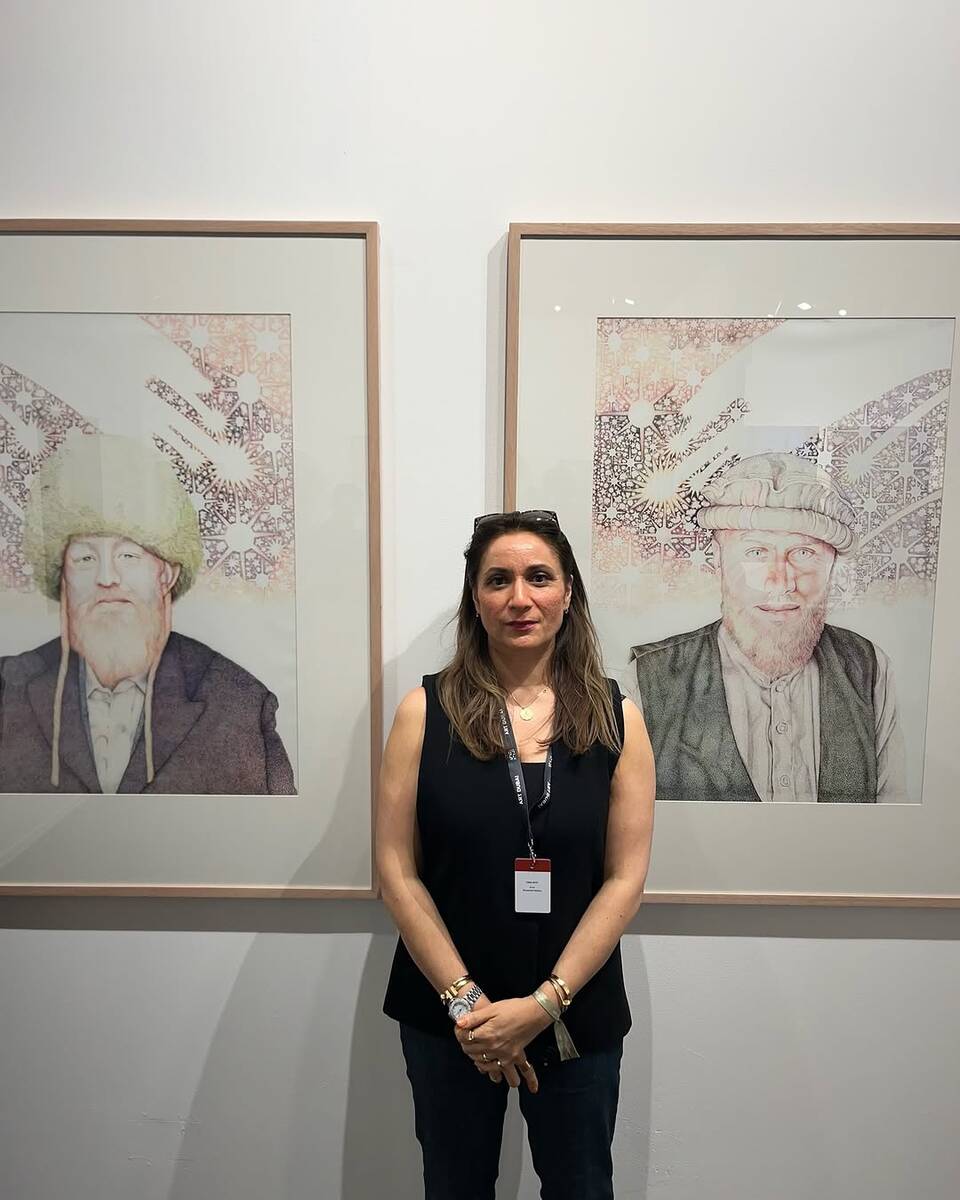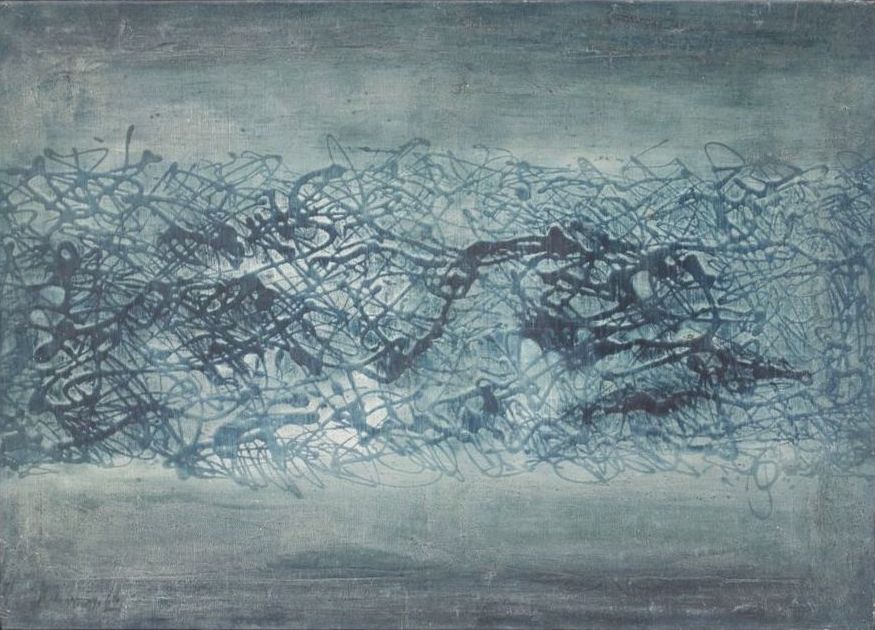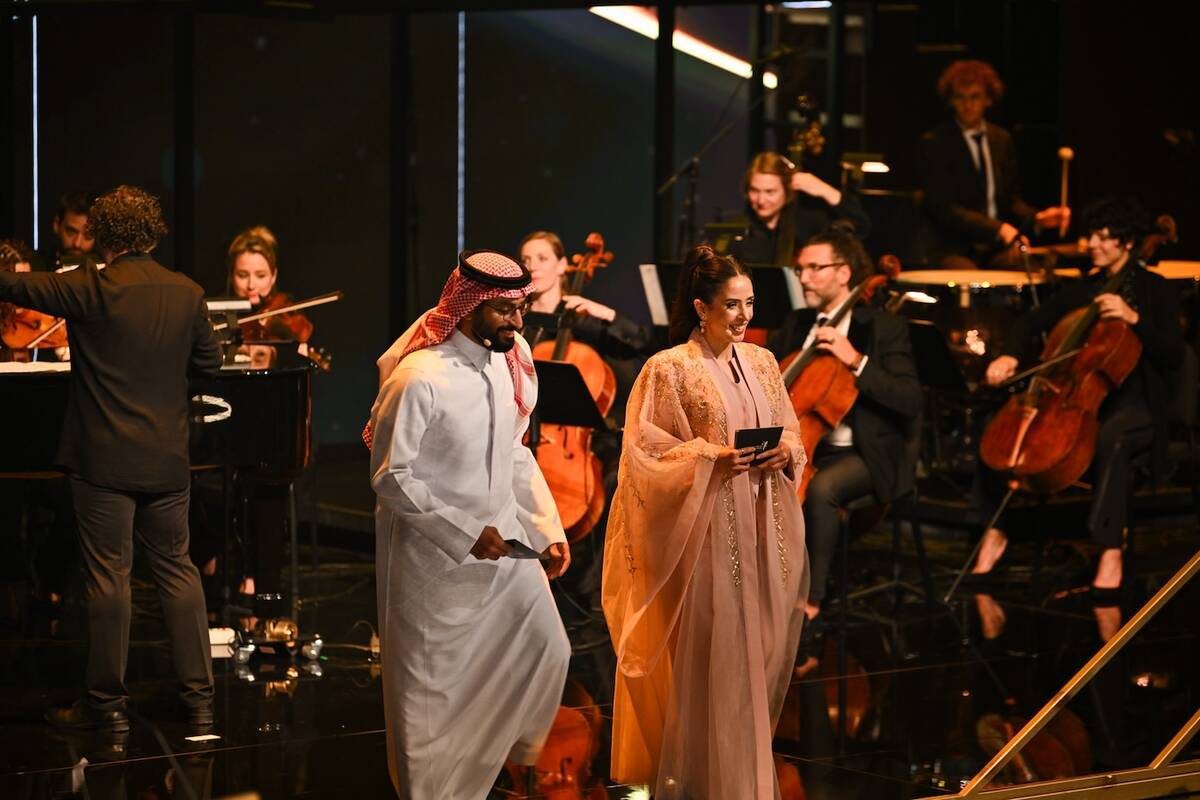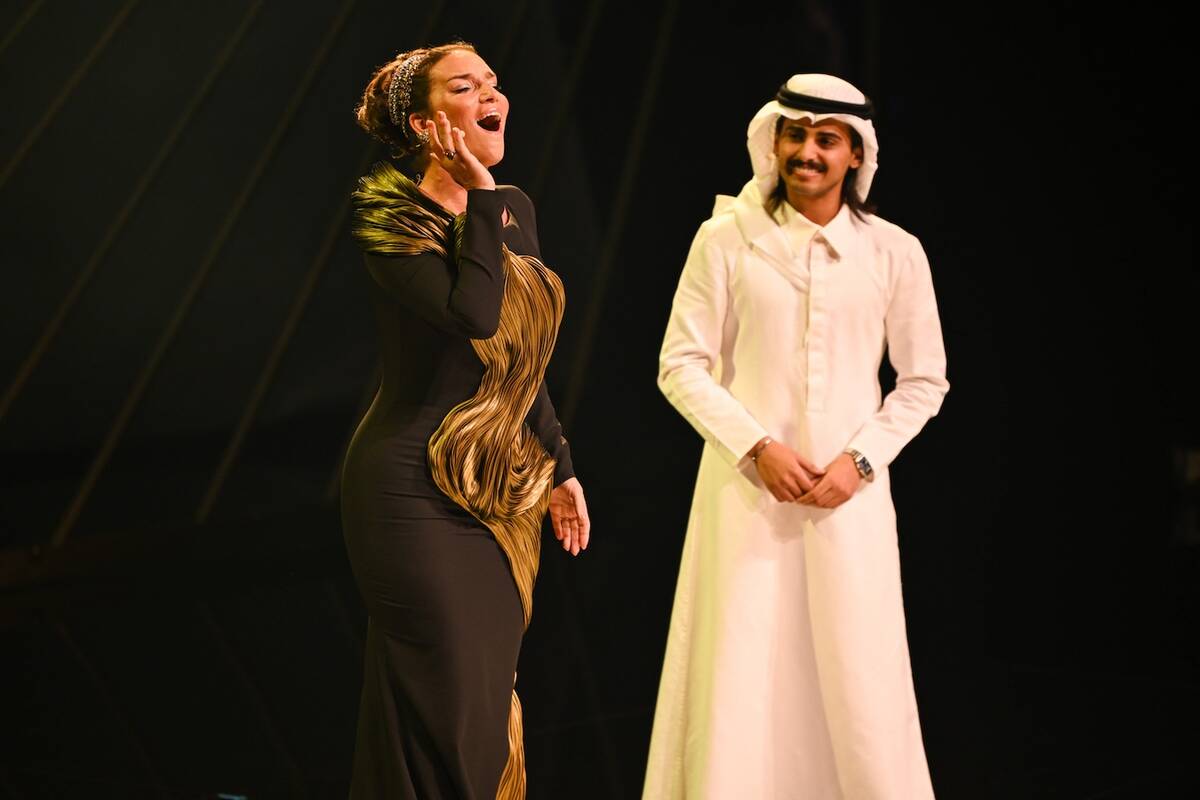DUBAI: Saudi artist Heba Ismail doesn’t lack ambition. “I want to be the second Picasso — the female Picasso,” she tells Arab News.
Born and raised in Jeddah in the Nineties, Ismail, who is also a qualified dentist, grew up in a household that valued art. Her father had lived in both Egypt and England and happily passed on his knowledge of art and history to his two children.
In their home, there was a copy of the famed Spanish artist Pablo Picasso’s 1937, black-and-white masterpiece “Guernica” — based on the devastating bombings of the Basque town during the Spanish Civil War. It left a strong impression on the young Ismail.

Heba Ismail, 'Alyah.' (Supplied)
“‘Guernica’ is so scary for a child,” she says. “We had a huge replica of it in our living room, taking over nearly half of the wall. I used to stare at it — and you can see and feel the fear in it. But, in a way, I also used to see beauty in it.”
Picasso’s radical cubist art has been a major influence on Ismail’s own practice, which she refers to as “Hebaism.” And despite the increasingly negative reports, and opinions, of the late Spanish artist as a person, Ismail is still inspired by his painting.
“I feel that all of us are full of flaws,” she says. “If you’re going to dig deep into any role model in history, you’re going to find a lot of bad stuff about them; I know Picasso was controversial (because of) how he treated women.

'Floral man.' (Supplied)
“I love being a pioneer — being the first one to do something. I love that Picasso made his cubism art movement. It was so out-of-the-box and that’s what I admire about him,” she continues. “He was creating something out of nothing. When realist artists made art, they drew something as they saw it — it already existed. Picasso drew something out of nothing. It was a form of creation.”
Ismail works mostly with painting, producing maximalist, thick-lined, angular portraits of people often dressed in traditional Saudi (and Arab) clothing or featuring local props and motifs, such as scarves and coffee cups.
“I am very proud of my Saudi heritage,” she says. “I see so much beauty in Arab culture in general. I want my work to speak to all Arabs, not just Saudis.”
On closer inspection, many of Ismail’s works can be read as psychological studies too, exuding tension and confusion.

'Shamikh.' (Supplied)
“When I’m painting, I try to create characters out of nothing. I want something that is not from reality, something from another realm. That’s why I respect Picasso’s art. He’s not painting something he is seeing; he’s painting something he is feeling,” she explains. “Art pieces shouldn’t tell you how to think, they should tell you how to feel. When people perceive my art, I want it to help them process their feelings. It’s kind of therapeutic in a way.
“I consider my art as my personal diary,” she continues. “Some of my paintings are close to my heart, telling a personal story of a traumatic experience or a feeling — either joy or sadness — that I had. A person’s life is not going to be all rainbows and butterflies.”
Ismail divides her time between art and medicine, two opposite fields that fascinate her. “I lose track of time and I’m always happy painting. Unlike dentistry, I don’t consider it work,” she says. “I always had a knack for art. I loved to draw in school books and I used to do graffiti in school. I’ve wanted to be an artist since I was a baby, but I had to have another career.

'Autumn leaves.' (Supplied)
“I loved medicine as well. There’s a weird connection between art and medicine: Leonardo da Vinci used to do anatomical drawings. I chose dentistry because it’s a skill that I can do with my hands. I love working with my hands. I felt there was something artistic about dentistry, which requires delicate and artistic hands. When I was studying dentistry, I put art to the side, but even my notebooks were full of sketches.”
As a youngster, Ismail attended art classes at Darat Safeya Binzagr, a multi-purpose and influential cultural center in Jeddah founded by Saudi artist Safeya Binzagr, who died this month. “May she rest in peace,” says Ismail. “She truly was the only one who was thinking about nurturing artistic talent for Saudis.”

Heba Ismail. (Supplied)
Ismail’s work will next be publicly shown in a group show, “Modernity Roots,” which runs at the Bilory ArtHaus in Jeddah from Sept. 29 to Nov. 15. She is making a name for herself in the Kingdom with her works (which she describes as “not for everyone, not everyone will understand them”), which have been purchased by Saudi clients and attracted the attention of brands keen to work with her, including major fashion retailer Shein and luxury manufacturing company Kohler. But her ambitions stretch far beyond the boundaries of her homeland.
“Honestly, I want to put my art on the map, worldwide. I want my paintings to be in the auction houses Christie’s, Philips and Sotheby’s,” she says. “I don’t consider it a dream, but a goal. I want to make history as a Saudi woman.”





























